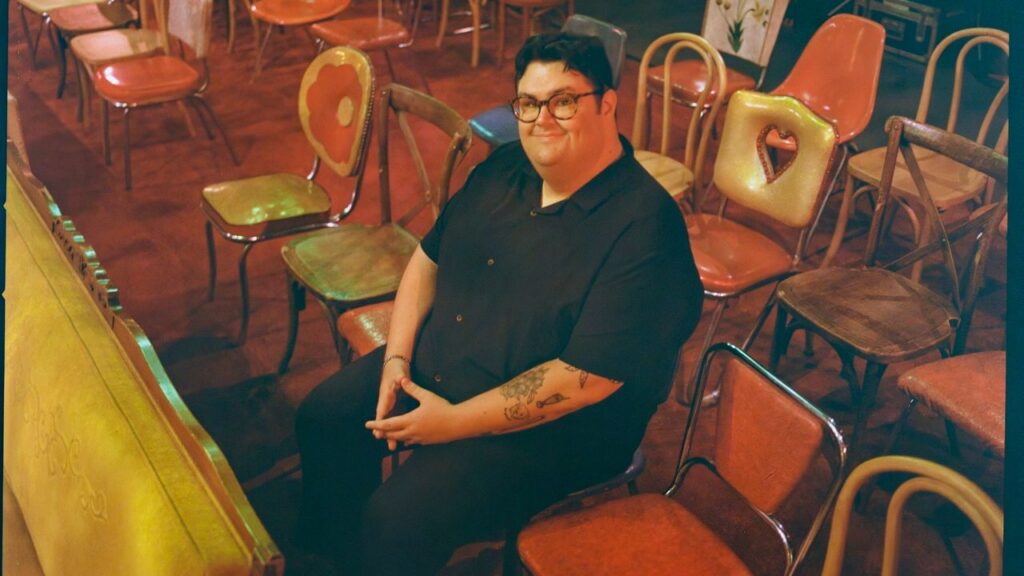Hearon is pretty clear on his positions: He’s anti-billionaire, anti-landlord, anti-police; pro-Palestine, pro-trans rights, and pro-redneck progressivism, a term he coins in the special. (Many people, he says, have the right idea when it comes to things like gay marriage and other issues facing the LGBTQ community, but might use some outdated terms when talking about it.) The joy of being in the same room as Hearon is watching him effortlessly toggle between in-depth, educated social commentary and wisecracking. Sometimes the two blend together in a way that makes it hard to extract the real from the joke. Sometimes the twinkle in his eye or the cadence of his delivery give it away. Here’s a sampling of his current takes:
On politicians in the era of secularity: “Culturally I think it was better when our leaders had to at least pretend to be Christian. You know what I mean? I think that actually was going better for us than this thing that’s going on now.”
On deleting Twitter, the platform where he first gained notoriety: “I got my first writing jobs off Twitter. But I fucking hate [Elon Musk] so much. Old Twitter was great. I miss it all the time. I go in an alley where no one’s looking and fire off of a ‘POV, the barista was rude to you’ video or whatever the fuck I was doing.”
On the manosphere: “The optimization thing, I don’t know what that is…Like the 5 a.m. hit the gym, egg yolks. We got to invest. We got raw milk. We got to invest in raw milk while at the gym. These fucking freaks that are so put upon because, I don’t know, they’re not getting to date the three women they like or something? I don’t know what’s causing the upset. But it really is insane to watch some of these crazy optimizing psycho bros interact with real, normal human beings that are enjoying themselves. That would be my note to young men that are seeking this out: those guys are not happy. Don’t follow them!”
Hearon also weaves a few minutes about one of the most traumatic days of his life into the HBO special. In 2022, his father died unexpectedly while Hearon was on a trip with friends. Hearon describes his dad as a man who was hard to pin down ideologically, maybe not a great father, but ultimately good.
“I try not to take anything to the stage that I haven’t dealt with enough to not be raw about it,” he says, re-adjusting his position on the small couch we’re sharing. “I’ve never cried on stage talking about anything serious, not even my dad, which to me means I did the very good work of being ready to talk about it. I don’t think the stage should be therapy, but I do think convening with strangers about ideas is the most special thing that we do.”
On my way out, Hearon offers me a box of Sharpies and asks me to sign the massive pillar that bisects the room. I find some space under the names of a few comedians I recognize. Emerging onto the street, I think about one thing we discussed: How comics, who have to be so on when they’re performing, are thrust back to the coldness of reality as soon as they put the microphone down. Days later, combing through the transcript, I find his eloquently-stated thoughts on the matter. In classic Caleb Hearon fashion, they’re a telling summation of how his brain works, punctuated with a great line: “Comics talk about this a lot, getting off stage and feeling so sad. I’m not experiencing that. I don’t really derive worth from it. I like being good at it. If I have a bad show, it’s upsetting to me, but I don’t feel like I’m unlovable and everything is dark. I’m like, oh, I just had a weird night tonight. No fucking worries.”


